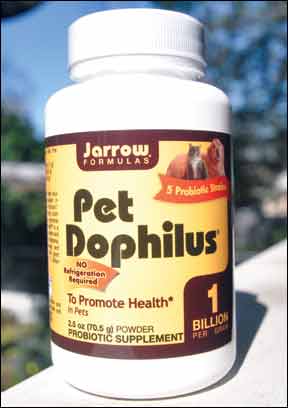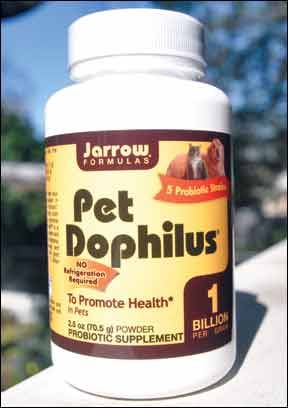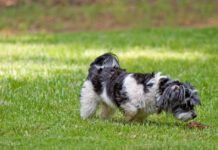[Updated August 22, 2018]
Prebiotics (no, it’s not a typo) nourish probiotics, the beneficial bacteria discussed last month that support digestive health, the immune system, and more. A prebiotic is defined as “a nondigestible food ingredient that beneficially affects the host by selectively stimulating the growth and/or activity of one or a limited number of bacteria in the colon and thus improves host health.”

Prebiotics are soluble, fermentable fiber, a type of nondigestible carbohydrate, also called resistant starch. Fructooligosaccharides (FOS) are the most common, but other oligosaccharides, arabinogalactans, and lactulose are also considered prebiotics. Sources include inulin (a form of FOS extracted from chicory), larch (a source of arabinogalactins), pectins, beet pulp, gums (e.g., guar gum), and wheat dextrin (Benefiber).
Prebiotics are included in many probiotic supplements (the combination is called “synbiotic,” referring to the synergy between the two). Food sources of soluble fiber include legumes (beans, lentils, peas), whole grains, fruits, vegetables, and Jerusalem artichokes (sunchokes). Some commercial dog foods have added sources of soluble fiber, such as chicory. Soluble fiber supplements are also available.
Why Should Dogs Use Prebiotics?
Prebiotics support the growth of probiotics, which help keep bad bacteria under control in the dog’s gut. By supporting the good bacteria, prebiotics help to prevent disease, improve digestion and nutrient absorption (especially minerals), and enhance the immune system. Dogs fed prebiotics are less likely to get diarrhea caused by the overgrowth of bad bacteria, and soluble fiber also helps to prevent or treat diarrhea by absorbing water and slowing intestinal transit. Fed to females during pregnancy and lactation, prebiotics provide enhanced immune protection to the puppies through colostrum and milk, and the puppies have an enhanced response to vaccines.
Soluble fiber is fermented by bacteria in the colon to short-chain fatty acids (SCFAs), the primary fuel for the cells of the colon. Increased concentration of SCFAs and numbers of beneficial bacteria support gastrointestinal health and the immune system.
Prebiotics may be especially beneficial for dogs with immunosuppression or digestive disorders, and for all dogs following antibiotic therapy. Studies done on rats show that prebiotics may help correct hyperlipidemia (high blood triglycerides or cholesterol) brought about by diabetes and other conditions. Human studies have shown that prebiotics may reduce the risk of colon cancer and irritable bowel disorders.
Use Care When You Give Your Dog Fiber Supplements
Prebiotics included in probiotic supplements are unlikely to cause any problems. Fiber supplements, however, should be used with caution. Too much soluble fiber can lead to gas and loose stools. Insoluble fiber (roughage), such as cellulose, speeds intestinal transit time (laxative effect) and reduces mineral absorption. Both types of fiber bulk up stools.
It’s important that dogs drink enough water when taking fiber supplements (especially insoluble fiber); add water to food if needed.
Dosing Prebiotics
Probiotics and prebiotics are best given together. Follow label instructions when using products made for dogs. When using products made for humans, adjust the dosage based on the size of your dog compared to an adult human (e.g., give about half the human dose to a dog weighing 50 to 60 pounds, or one-quarter the human dose to a dog weighing 25 to 30 pounds). If using a fiber-only supplement, start with low doses and increase gradually. Decrease the amount or switch to a different product if you see signs of gas or diarrhea.
Recommended Prebiotic Sources:
1. Thorne Veterinary’s ArabinexVET, an arabinogalactan product
2. Metamucil Clear & Natural, an inulin product
3. Jarrow’s Pet Dophilus contains inulin
4. Vetri-Science’s Vetri-Probiotic contains FOS and arabinogalactan powder
5. Nusentia’s Probiotic Miracle contains inulin
6. Garden of Life’s Primal Defense contains cereal grasses that act as prebiotics
Mary Straus is the owner of DogAware.com. Straus and her Norwich Terrier, Ella, live in the San Francisco Bay Area.





